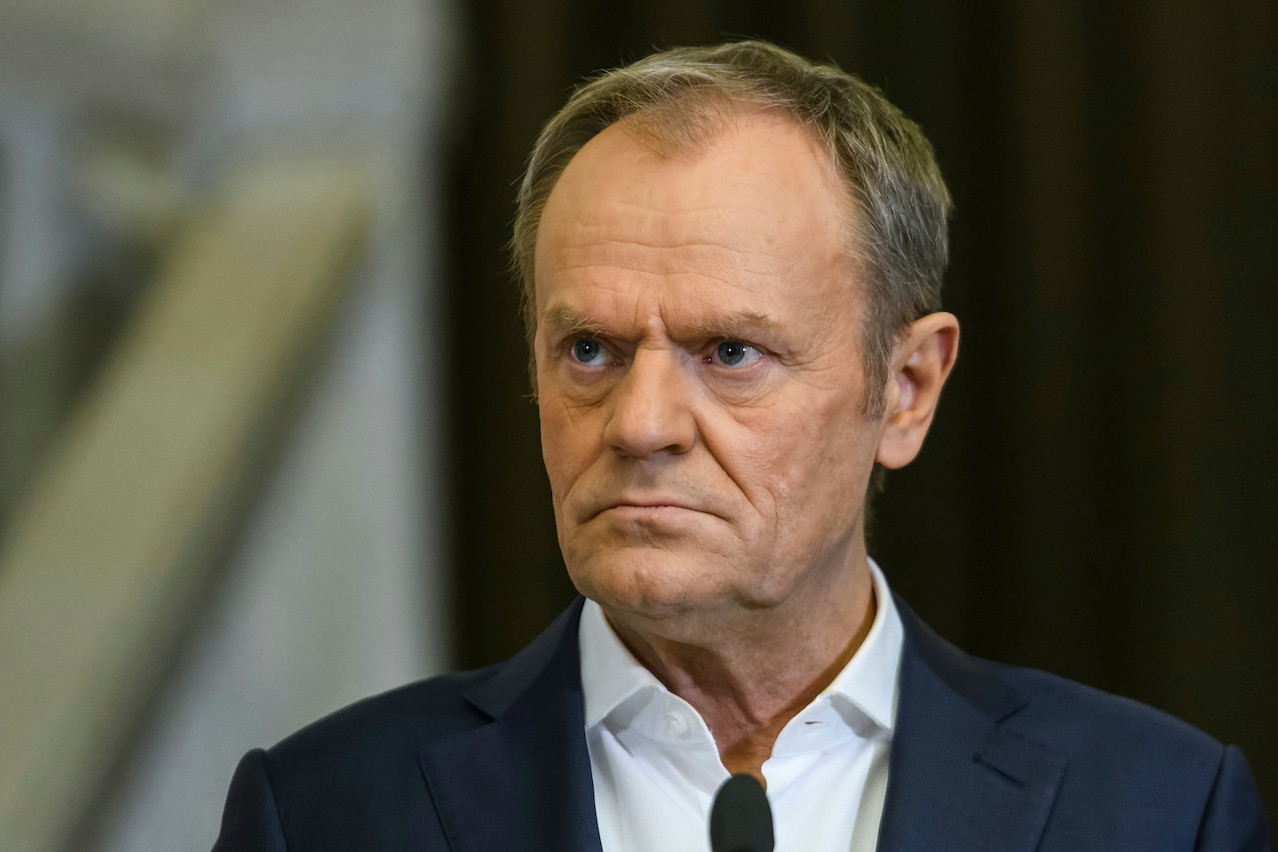On Wednesday 22 January, Donald Tusk was expected to address the major themes of the Polish presidency, with security at the heart of his programme. Opting not to go through the programme unveiled at the beginning of the year again, he focused his speech on the crisis of the European spirit. It’s this European spirit that is seen as the driving force behind this programme.
“Don’t be afraid,” he told MEPs. In front of the elected representatives, he hammered home his credo: we must combat the current crisis in the European spirit. “To respond to this moment of uncertainty in the world, Europe should not have any complexes. We need to tell our citizens to hold their heads high. Europe was, is and always will be great. Europe is strong, Europe is great and its future is bright. The EU has built its greatness by taking many fearless leaps into the unknown.” Without going so far as to promise “blood, toil, tears and sweat,” as Winston Churchill did in a speech to the UK’s parliament in 1940, Tusk was clear: “The time of comfort is over.” There are many challenges ahead, but it will be easier if the European spirit is present, in his view. “We are strong, we are equal rivals to the other powers.”
5% of GDP for defence
It is thanks to this spirit that he intends to meet the challenge of internal security. Tusk argued in favour of a target of 5% of GDP dedicated to defence. “Europe will be a valuable ally for Washington if we take responsibility for our own security,” he insisted. Against a backdrop of mistrust towards Washington, Poland is already arguing that defence spending by EU countries will largely benefit the United States. A position that annoys French defence minister Sébastien Lecornu, who would prefer the European Commission and Council to focus on developing a genuine European defence industry. At the same time, Warsaw is considering closer cooperation with its partner on the other side of the Atlantic in the energy sector, particularly as regards the purchase of liquefied natural gas.
It is also thanks to this spirit that the president of the Council of the European Union intends to tackle external security, and more specifically the problem of migration. “We must avoid being naive on the issue of migration.” For Tusk, we have reached a situation where respect for our democratic values is seen as a sign of weakness. “Democracy, without losing sight of its values, must once again become synonymous with strength and power. If we want to preserve our values, we have to guarantee the security of our borders!” He did not, however, give any clues as to the future of the migration pact.
Deregulation and a review of the Green Deal
As for economic security, Tusk appealed to parliamentarians. “Europe must once again be creative and competitive. This is the task of the European Parliament,” he told MEPs, urging them to carry out a Copernican revolution: to work on regulations that will allow businesses to regain room for manoeuvre. Regulation, not simplification. “Our competitiveness and energy security depend on it.” Food security too, with Tusk calling for a reduction in “the administrative burden on our farmers.”
He then urged MEPs to review the Green Deal to combat soaring energy prices. “Once the war in Ukraine is over, we won’t have Russian hydrocarbons and its comfort back. That’s why it’s crucial to ensure that energy in Europe is not the most expensive in the world. European regulation has led to unacceptable price levels. Let’s not be naive: protecting our environment must not be done at the expense of citizens and businesses. We need to think critically and in depth about the current arrangements.”
After-sales service
Now it’s time for action. We're talking about Poland holding the EU’s rotating presidency, but technically it would be more accurate to speak of a trio presidency. Alongside Poland, there are also Denmark and Cyprus, who together have drawn up a programme for the next 18 months. It’s a programme that calls for a strong, secure, competitive, prosperous and democratic Europe. But, in the short term, together they will have to ensure the after-sales service of the Draghi report and--the two subjects are linked--begin negotiations on the European Union’s post-2027 budget. It is Warsaw that will have to initiate the first budget discussions.
Just as it will have to ensure continued support for Ukraine--a country with which Poland shares a 535-kilometre border. And this at a time when France and Germany are unable to maintain their traditional leadership.
This article was originally published in .
